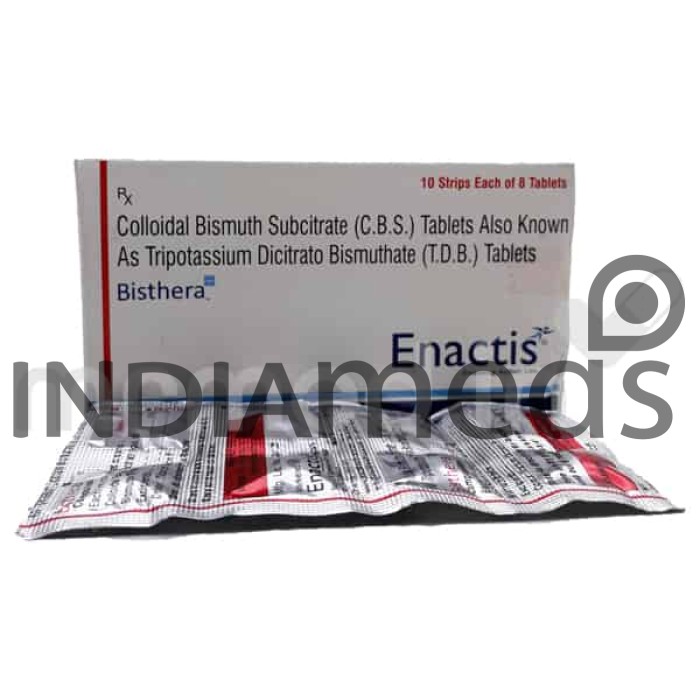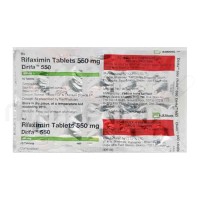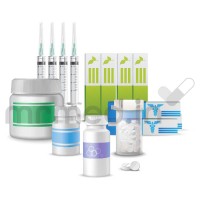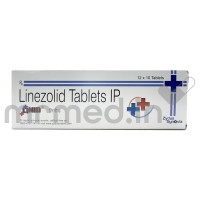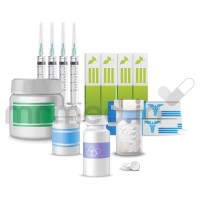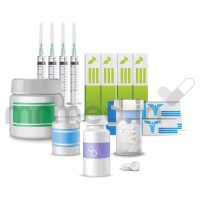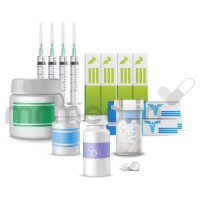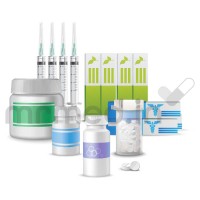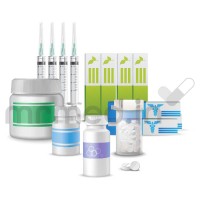Bisthera Tablet contains active components called Tripotassium citrate bismuthate. It may be used to alleviate the symptoms of gastritis, which involves inflammation of the stomach lining, causing symptoms such as stomach pain, bloating, and nausea. This medication may be used as part of the treatment for peptic ulcers, which are sores that develop on the lining of the stomach, small intestine, or esophagus. This medication might be used to treat reflux esophagitis, a condition in which stomach acid backs up into the esophagus, causing inflammation and discomfort. It is also used in the treatment of dyspepsia. Dyspepsia refers to recurrent or persistent pain or discomfort in the upper abdomen.
Individuals with a known allergy to Bisthera tablets or other medications should not use this medication. Patients with severe kidney problems may not be suitable candidates for this medication. It may only be suitable for children, especially with proper medical supervision. It is essential to consult a pediatrician before administering this medication to children. Elderly individuals should use this medication cautiously, as they may be more prone to certain side effects or interactions with other medications.
- Gastritis
- Peptic ulcer disease
- Dyspepsia (indigestion)
- Reflux esophagitis
Therapeutic Effects of Bisthera Tablet
Pregnancy
There is limited information on the safety of Bisthera Tablet in pregnancy, so it is important to consult a doctor before using it.
Breast Feeding
It is important to talk to your doctor before taking any Bisthera Tablet. It should not be used by breastfeeding women unless necessary, as there is limited information on the safety of this medication.
Lungs
If you have lung conditions, it is important to consult a healthcare provider before taking Bisthera Tablet.
Liver
People with severe liver impairment should consult a healthcare provider before taking Bisthera Tablet.
Alcohol
It is unsafe to drink alcohol while taking Bisthera Tablet. Alcohol can increase the risk of side effects from this medication, such as nausea, vomiting, and diarrhea.
Driving
Bisthera Tablet can cause side effects such as dizziness and drowsiness. If you experience any side effects, such as nausea, vomiting, and diarrhea, consult your healthcare provider before taking it while driving.
Serious:
- Allergic reactions
- Bismuth toxicity
Common:
- Darkening of the tongue and stool
- Gastrointestinal disturbances
Common side effects of Bisthera Tablet may include darkening of the tongue and stool and gastrointestinal disturbances such as constipation or diarrhea.
If you miss a dose of Bisthera Tablet, take it as soon as you remember. However, if it is almost time for your next dose, skip the missed dose and continue with your regular dosing schedule. Do not take a double dose to make up for the missed one.
The time it takes for Bisthera Tablet to show its effects may vary depending on the individual and the treatment condition. Following the prescribed treatment regimen and consult a healthcare professional for any concerns about the medication's effectiveness is essential.
It is important to complete the full course of Bisthera Tablet as prescribed by your healthcare professional, even if symptoms improve. Discontinuing the medication prematurely may lead to a relapse of symptoms or incomplete recovery.
While there may not be specific dietary restrictions, it is advisable to consult a healthcare professional regarding any dietary considerations that may optimize the effectiveness of the Bisthera Tablet and alleviate gastrointestinal symptoms.
Molecule name: Tripotassium dicitrato bismuthate | Therapeutic class: Bismuth-containing compound |
Pharmacological class: Gastrointestinal agent | Indications: 1. Gastritis 2. Peptic ulcer disease 3. Dyspepsia (indigestion) 4. Reflux esophagitis |




